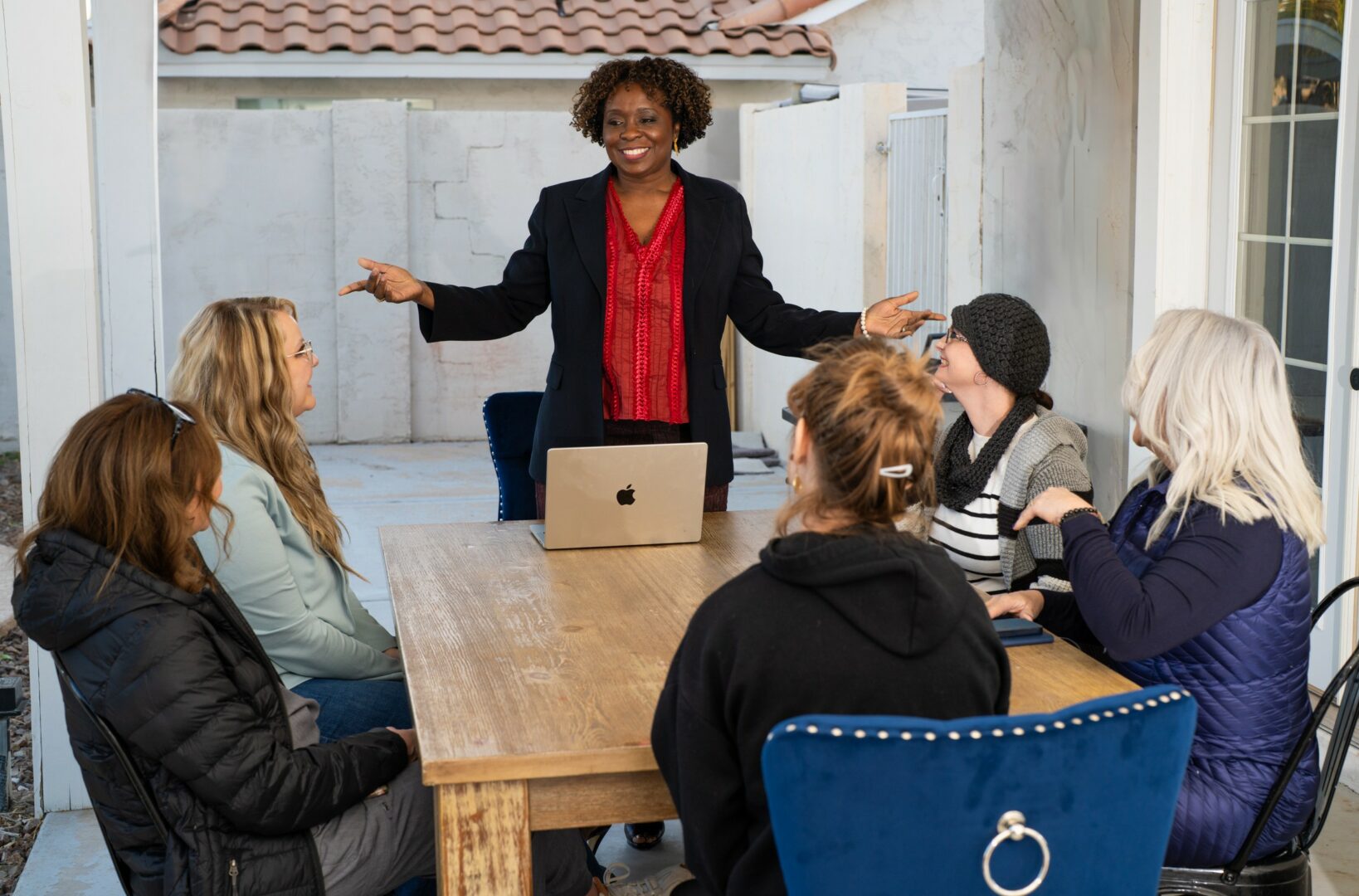We’re excited to introduce you to the always interesting and insightful Julie Johnson. We hope you’ll enjoy our conversation with Julie below.
Hi Julie, we’re so appreciative of you taking the time to share your nuggets of wisdom with our community. One of the topics we think is most important for folks looking to level up their lives is building up their self-confidence and self-esteem. Can you share how you developed your confidence?
To reach the core of my confidence and self-esteem issues, I underwent extensive therapy that delved into the deep-seated impact of childhood trauma on my beliefs. It’s crucial to recognize that navigating confidence and self-worth in a society that imposes unrealistic standards on women often necessitates mental health therapy. Seeking a neutral observer to confront our internal conflicts and challenge the falsehoods imposed by external sources is vital. While a supportive circle is valuable, having individuals who can affirm our inherent completeness without sugarcoating reality is equally essential.

Thanks, so before we move on maybe you can share a bit more about yourself?
My name is Julie Johnson. I am an instructional designer and yoga teacher. I co-founded the platform Integrate Trauma Informed Network, which is an award-winning platform teaching human-centered communication and trauma-informed decision skills to professionals to develop a caring world.
In my daily engagements, I’ve observed a growing acknowledgement among instructional designers and personnel of the vital role mental health accommodations play in fostering a supportive learning environment. The focus on simplicity and microlearning strongly resonates with me as I advocate for simplifying intricate concepts into manageable parts to enhance accessibility and learner well-being.
A recent significant project involved partnering with an innovative organization to incorporate mental health resources and self-care practices into their e-learning modules. The positive reception from employees and the evident benefits of these integrated supports in their daily lives reaffirmed my commitment to creating human-centered experiences that prioritize overall well-being alongside educational goals.
While this transition offers exciting prospects to build more inclusive e-learning environments, it highlights the importance of staying attuned to individual needs and continuously refining our strategies to effectively tackle business and accessibility challenges. This personal journey of blending professional expertise with a sincere dedication to advancing accessibility and mental wellness through e-learning inspires me to push boundaries and advocate for a compassionate approach to instructional design.

Looking back, what do you think were the three qualities, skills, or areas of knowledge that were most impactful in your journey? What advice do you have for folks who are early in their journey in terms of how they can best develop or improve on these?
Central to my journey has been the continual availability of a therapist or a supportive community, facilitating a link to my inner essence and fostering self-acceptance. Maintaining this connection to my inherent resilience and having individuals around me who mirror my wholeness, even when addressing difficult truths, is essential for me to comprehend pivotal facets of my being. Moreover, belonging to a community that upholds fundamental goodness has profoundly impacted my trajectory. Exploring the teachings of the yoga sutras, herbal remedies, and trauma-informed mindfulness has introduced me to fresh cognitive pathways that nurture both my physical and mental well-being.

Thanks so much for sharing all these insights with us today. Before we go, is there a book that’s played in important role in your development?
The Yoga Ethics, particularly the Yamas and Niyamas, have been a transformative influence on both my journey as an instructional designer and in my personal life. These guiding principles offer me a moral compass for navigating interactions with others and a roadmap for self-discipline and growth.
In my role as an instructional designer, embracing the values of the Yamas and Niyamas has deeply impacted how I approach my work. Concepts like Ahimsa (non-violence) inspire me to create educational content that respects and values every individual’s unique perspective, fostering a more inclusive learning environment. Practicing Satya (truthfulness) ensures that the materials I develop are authentic and genuine, building trust with my audience and enhancing the impact of my designs.
On a personal level, weaving the essence of the Yamas and Niyamas into my daily life has brought about a holistic approach to self-improvement. By embodying principles like Saucha (cleanliness), I strive for clarity and organization in both my professional endeavors and personal space, creating a harmonious environment for creativity and productivity. Engaging in Svadhyaya (self-study) prompts me to reflect on my actions, fostering continuous learning and growth that enrich not only my work but also my personal development journey.
In essence, the Yoga Ethics of Yamas and Niyamas have profoundly shaped my path as an instructional designer by instilling ethical considerations and self-awareness into my creative process, while also empowering me to cultivate mindfulness, integrity, and ongoing self-betterment in all aspects of my life.
Contact Info:
- Website: https://www.letsintegrate.live
- Instagram: @integrate_network
- Linkedin: https://www.linkedin.com/in/juile-johnson101/

Image Credits
Mackenzie Leek Photography
so if you or someone you know deserves recognition please let us know here.




